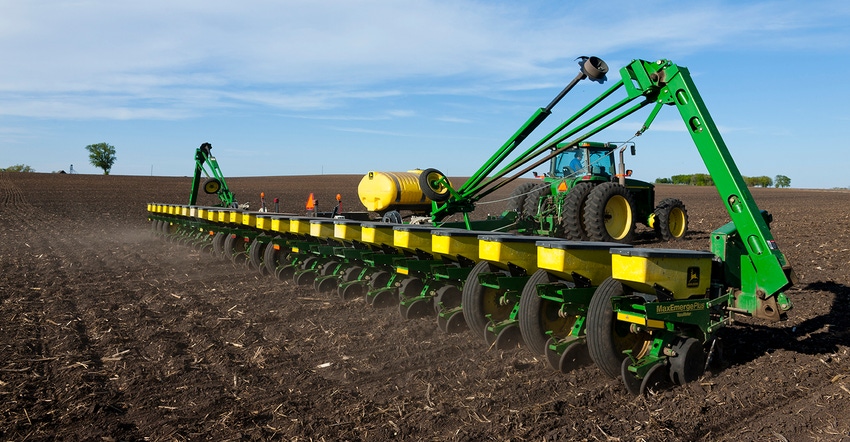
If you’re a farm leader gearing up for planting season, you know there can be a lot of questions going into this time of year. There are always questions about what weather will be like. Will the crop get in the ground quickly or will the season be more drawn-out? Will there be too much rain – or not enough?
It’s true that there are certain things that aren’t in our control– like the weather – but as farm leaders, there are other things that are in our control. And a lot of that has to do with planning and preparing for the spring season.
Many preparations for planting are already complete, and some might still be in progress. Here’s one more thing to prepare as a leader: a mindset of anticipation.
Pivot power
What does it mean to anticipate when it comes to planting season on the farm? The main thing it can mean for you and for your operation is the ability to pivot more quickly when a curveball happens.
Taking a mindset of anticipation involves thinking ahead of time about the main things that could impact your operation’s ability to achieve an optimal spring season. It doesn’t mean trying to figure out every little scenario – which would be impossible – but it does mean taking some time to intentionally think about the major, most likely things that could throw plans off, unique to your operation.
Doing this now gives you a chance before the busy seasons kicks into gear to make alternative plans and to know what you’d do if one of those scenarios happened. And if something “different” happens – whether you’ve thought about it specifically or not – your mind is already more flexible. That’s because you’ve already gone through the exercise of thinking in an agile way.
Try it out
Here are a couple ways to think about this for your farm operation.
Consider curveballs. What are the things most likely to happen that would cause our farm to need to shift and change our plans this spring? No need to list out every single thing – just get the top, major ones down on paper or screen.
Create alternative plans. What will your Plans B, C, D, E and so on look like? The more important the objective, the more that having multiple alternative plans will help you – and help ease your mind, too.
Find more flexibility. Try to think of ways to build more flexibility into your farm’s spring plans from the start. This means creating agility around all aspects of your farm, including your “Plan A” ideal scenarios. Doing that will increase your operation’s chances of being successful.
Markets in the spring
Just because farms are busy with planting in the spring doesn’t mean the grain markets stop moving. This spring, the commodity markets seem to be more volatile than ever due to a combination of factors.
If you’re a busy farm leader who’s even busier in the spring, consider working with our team of market advisors. They help farmer clients with planning and execution around marketing decisions and help keep them up to speed on the rapidly-changing grain market situation – and how it impacts their operation.
Get a free two-week trial of our marketing information service (MarketView Basic). Your free trial includes regular audio and video updates, technical analysis, recommendations and more. Or learn more about our market advisor programs and offerings at www.waterstreetconsulting.com.
The opinions of the author are not necessarily those of Farm Futures or Farm Progress.
About the Author(s)
You May Also Like






